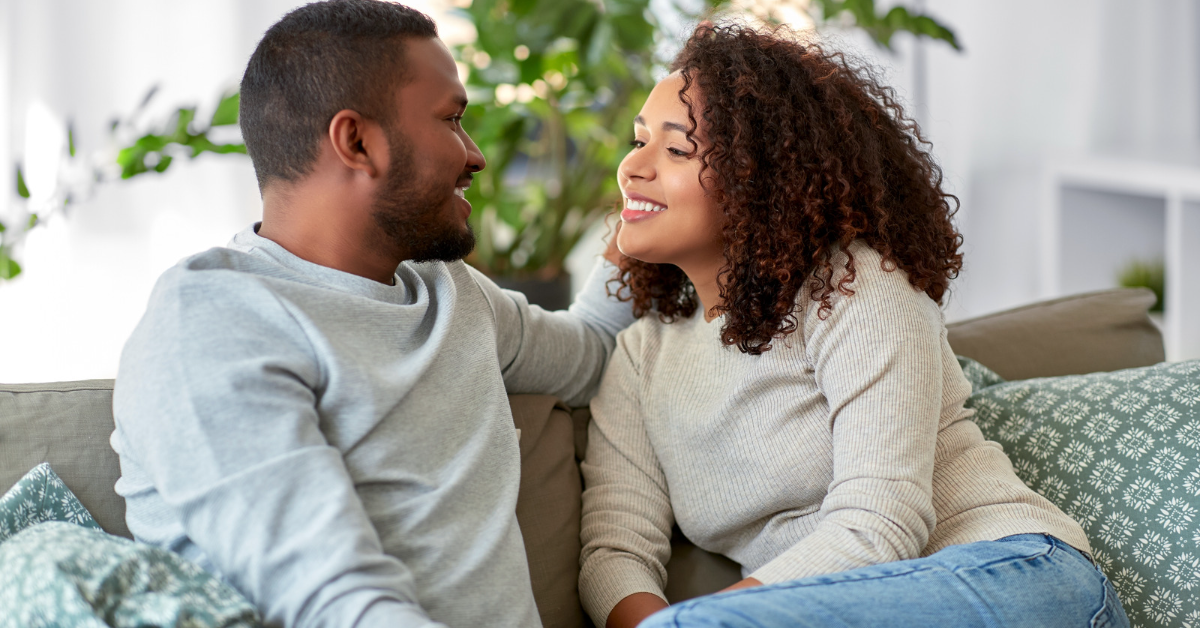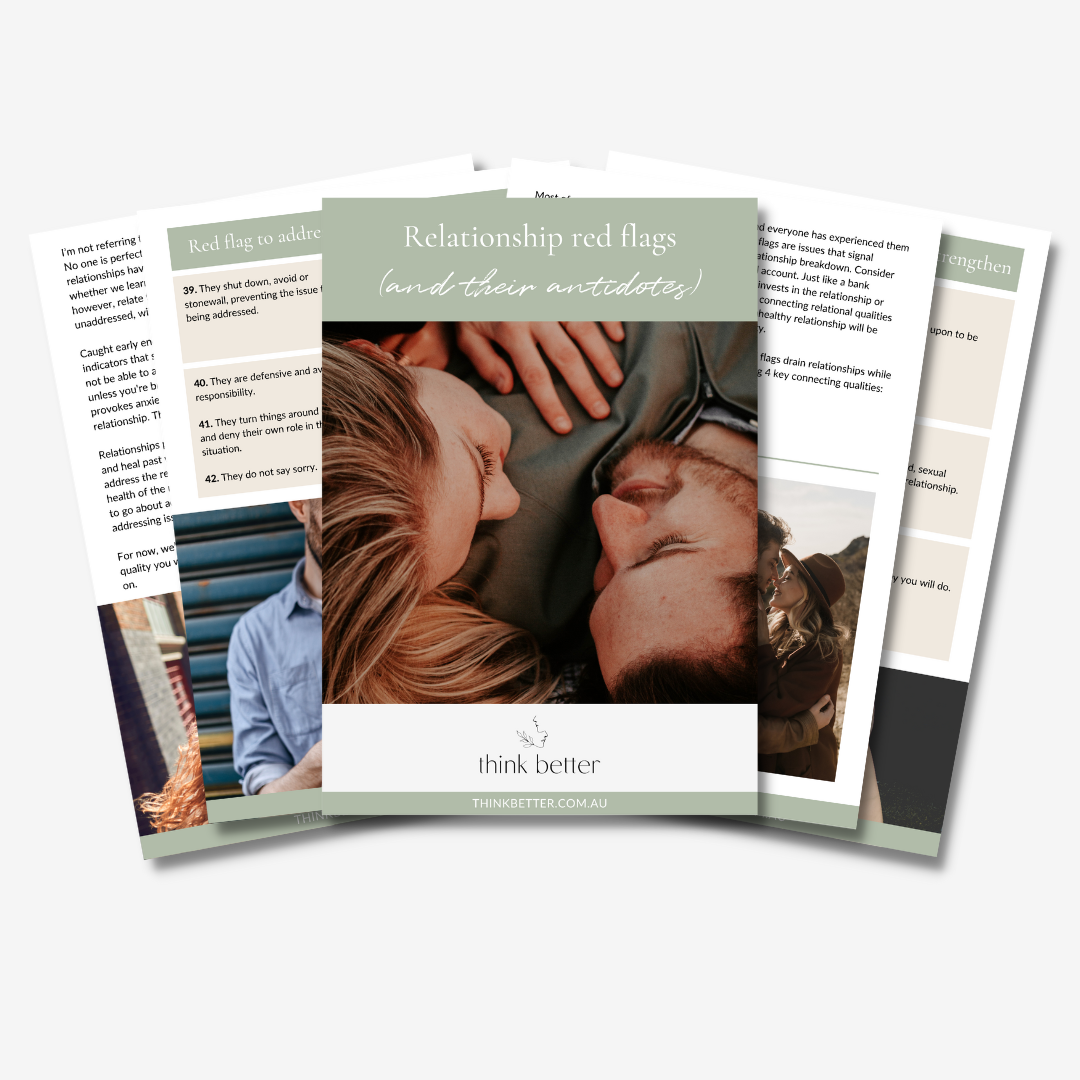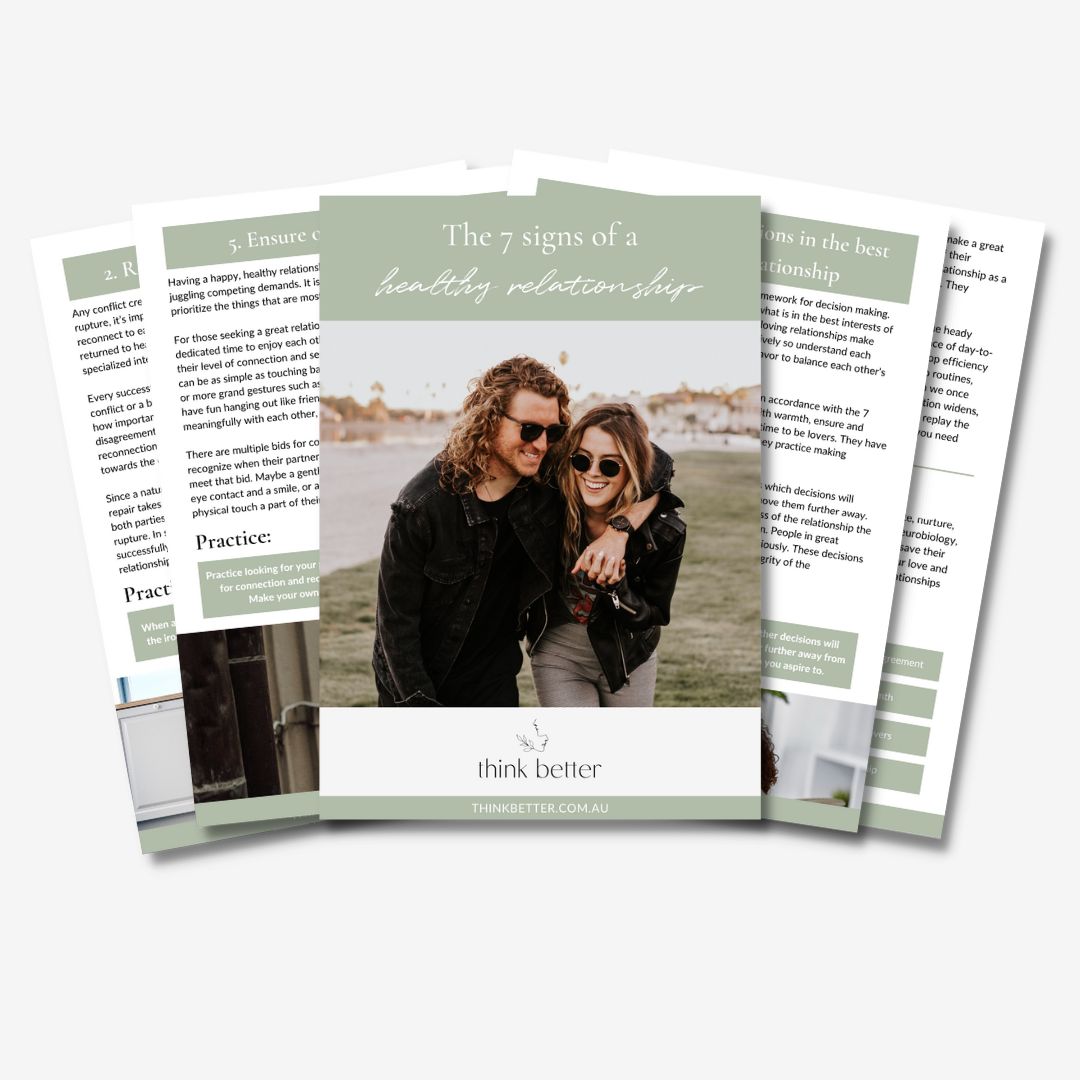One of the most common reasons people seek couples therapy is to learn how to have better communication for a better relationship. We quickly discover that while the words are being said, the message is just not being received with any accuracy. What may start as a conversation to deepen connection becomes a rabbit warren of confusion, misinterpretations, and frustration. I can almost see the words float into the air and fly straight past the listener. Perhaps they grab at the odd phrase as it passes by while defending themselves and getting ready to launch their counter-attack. When you sit back and watch you can see how quickly and easily people fall down the communication rabbit hole. Most of the time they don’t even know how it started or how they got there. Of course, you don’t need to be in an intimate relationship to have communication issues. The only prerequisite for having difficulty with communication is to be human!
One of the most powerful communication tools to deepen your understanding and connection to your partner and your fellow human beings is active listening. Active listening is a method of listening where you listen carefully to your person and reflect back their message along with their feelings. The point of active listening is to make sure you are present, focused on the person speaking, and understanding the message as fully as you can. Unfortunately, this goes against how most of us regularly communicate.
How to listen effectively
It is a rarity to come across someone who listens well but for healthier relationships you have to learn how to be a better listener and communicator. We are often half listening while making our own mental associations and formulating what we are going to say next. We fail to acknowledge and explore their story as we are thinking about how we can tell our own. For most of the conversation we are distracted by our own thinking – about ourselves. Sometimes we patiently wait for our turn. Other times we become so attached to the importance of what we have to say that we interrupt – what we have to say cannot wait! Learning effective communication through active listening transforms this tendency.
As active listening is not a usual conversational stance you have an opportunity to stand out from the crowd. It is a chance to greatly improve how you communicate – fast. Active listening promotes a feeling of validation for the person you are listening to. People feel truly heard when you acknowledge what they are saying and accept their feelings. Validation is a form of feedback and encouragement that can be deeply connecting – and don’t we all want more connection in our lives? Validation is the glue connecting deeper understanding and effective communication.
It is often assumed that listening is easy, but you will discover it is complex and nuanced when you learn how to listen more effectively. Words alone have multiple meanings and are open to numerous interpretations. There is an entire Australian court to clarify the wording of the constitution as it is so commonly misinterpreted. On a more mundane level, recently I was in a friend’s kitchen and was asked to put away two items – “one on top and another on the bottom”. I put one item on the top shelf of the fridge and one on the bottom shelf. When my friend couldn’t find the items in the cupboard, she was baffled. I’d interpreted her words incorrectly and hadn’t clarified my understanding. She’d assumed I would put them in the cupboard and wanted me to stack them, one on top of another. We laughed, as I assumed we were talking about fridge shelves, and she was talking about stacking order in a pantry. While this example had little consequence, you can see how fraught communication can be, especially when more important matters are being discussed.
Of course, it’s not just words we are interpreting when communicating. Your facial expressions, body language and tone of voice send signals to the autonomic nervous system of the other person indicating safety or threat – regardless of what is being said. With only 7% of communication being verbal it is amazing we understand each other even half the time. Emotions, comfort and safety levels are all communicated non-verbally and their interpretation is filtered through the experience of the receiver. Most neurotypical people register non-verbal communication almost instantaneously and the brain is primed to recognize emotion in others through mirror neurons. We can easily misinterpret non-verbal communication, so it is helpful to practice clarifying the message you think you have received.
The key to better communication
Clarification, rather than accuracy, is the most important part of active listening for better communication. Communication is not a quiz show – it’s about clarification rather than getting it right or wrong. Expect you will misunderstand and seek to clarify.
For example, your friend may say, “I’ve been on heaps of dates, and I still chat to a few people. It’s all a bit of fun, but I don’t know…”
- Clarify with a statement that reflects the main message and the feeling you’re sensing. For example, “You’ve had a good time dating but it gets you down because you’d like something more.”
- Your person will naturally offer clarification in response.
- If you’ve interpreted in a way that they feel heard they will say something like, “Exactly” and go on to elaborate.
- Alternatively, you may have misinterpreted the message. In that case they may clarify, “No, I’m happy just having fun. I don’t think I want anything serious.”
Active listening allows for deeper exploration, clarification and understanding – it’s a key relationship skill and essential for effective communication. When we feel heard and understood we naturally want to communicate more. We feel comfortable to open up as the connection deepens. Many of my students have reflected how powerfully active listening transformed their personal relationships during their counselling training. For some, good relationships strengthened and deepened even further. For others in more difficult relationships, some of the hard edges were smoothed and reconnection was taking place. This was achieved by 12 weeks of practicing active listening with their loved ones.
The foundation when practicing effective communication skills is to be authentic. Authenticity is displayed when our words, non-verbal communication and feelings are in alignment. There is nothing fraudulent or dishonest going on. True rapport and connection are impossible without authenticity. Most people can spot if you are not being authentic, so don’t try to be something that you are not or say things that you don’t mean. The saying “fake it until you make it” is simply untrue in this case. Be authentic. Be real. Every time. That way when you build a connection, you know it has a firm foundation. Active listening allows you to continue to build on that foundation until you have created something wonderful that will stand the test of time.





Thank you, Amy, this is great advice; something I need to always be conscious of, and I think I need to pass it on to a couple of menfolk in my family! Valuable words to live by.
Warm regards
Carol
Thanks Carol. Perhaps you could slip it casually into the conversation and read it to them? x